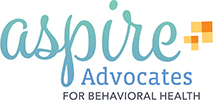YOUNG PEOPLE AND BEHAVIORAL HEALTH
Mental Health and Young People
Mental health conditions are common among teens and young adults. 50% of all lifetime mental illnesses develop by age 14 and 75% develop by age 24.
A mental health condition isn’t your fault or your family’s fault — these conditions develop for complicated reasons that researchers are only just starting to understand. But we do know a lot about how you can live well with a mental health condition. You have the power to improve your mental health. And it starts with one conversation.
Experiencing mental health symptoms can be scary and confusing. That’s why speaking up and asking for help is a sign of strength. It can be hard to know what to say, but start with something like, “I’m not feeling right. I think I need help. Can I talk to you about it?”
Whether you reach out to a parent, coach, teacher or religious leader, a trusted adult can help you figure out what’s next. Mental health services and supports are available and the earlier you access them, the better.
Information from NAMI on Kids, Teens, and Young Adults
Substance Use Among Teens
- Alcohol, marijuana, and tobacco are substances most commonly used by adolescents.1
- By 12th grade, about two-thirds of students have tried alcohol.1
- About half of 9th through 12th grade students reported ever having used marijuana.2
- About 4 in 10 9th through 12th grade students reported having tried cigarettes.3
- Among 12th graders, close to 2 in 10 reported using prescription medicine without a prescription.1
Although it is illegal for people under 21 years of age to drink alcohol, the findings show that people from 12 to 20 years of age consume about one-tenth of all alcohol consumed in the United States.
Risks of Substance Use
- Affect the growth and development of teens, especially brain development.
- Occur more frequently with other risky behaviors, such as unprotected sex and dangerous driving.
- Contribute to the development of adult health problems, such as heart disease, high blood pressure, and sleep disorders.
Finally, the earlier teens start using substances, the greater their chances of continuing to use substances and developing substance use problems later in life. When teens begin drinking at an early age, they increase the chance of becoming addicted to or continuing to abuse substances later in life.
National Institute of Health Publication on Drug Misuse and Addiction
National Institute of Health on why adolescence is a critical time for preventing addiction.
National Institute of Health Publication on Drug Misuse and Addiction
